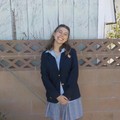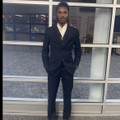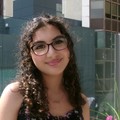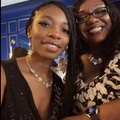Rooted in Change Scholarship
The environment connects us all, through the air we breathe, the water we drink, the communities we live in, and the places we call home.
Real change starts with those who are grounded in purpose, driven by curiosity, and unafraid to take the first step. If that sounds like you, we’d be honored to hear your story. Whether you’re passionate about conservation, sustainability, environmental education, public health, or another area of environmental interest, drive and determination can make all the difference in improving the world.
This scholarship aims to support students who are passionate about making a positive impact on the world around them.
Any high school senior who is committed to contributing to a healthier, more sustainable future through their education, community involvement, and long-term goals may apply for this scholarship opportunity.
To apply, tell us about an environmental challenge you’re passionate about solving and how you plan to make a difference. Essays will be evaluated based on originality and depth of insight, relevance to the prompt and real-world issues, clear connection between your personal story and future goals, and strong writing, voice, and overall organization.
What is one environmental challenge you’re passionate about solving, and how do you hope to make an impact in this area through your education, community involvement, and long-term career goals?
Your essay should be specific, personal, and action-oriented. Consider sharing:
- A moment or experience that sparked your interest in this issue
- The root causes or systems connected to the challenge you care about
- The academic path or fieldwork you’re pursuing to better understand and address it
- How you see yourself stepping into leadership, advocacy, innovation, or education in the future
- What gives you hope, and what kind of change you want to help create
Winners and Finalists
August 2025










Winning Applications



Explore All Kinds of Scholarships for All Kinds of Students
FAQ
The application deadline is Jul 25, 2025. Winners will be announced on Aug 25, 2025.
Your privacy is a top priority on the Bold.org platform, and you can find our privacy policy in full here. You may opt out of communications from Bold.org at any time, and unless we’ve first notified you and gotten your consent, you’ll never receive communication from any third parties related to personal information you give us.
Award amounts per winner are designated by the donor. Check the award amount for a detailed breakdown.
The winner will be publicly announced on Aug 25, 2025. Prior to the announcement date, we may contact finalists with additional questions about their application. We will work with donors to review all applications according to the scholarship criteria. Winners will be chosen based on the merit of their application.
Award checks will be sent to the financial aid office of the winner's academic institution or future academic institution in their name to be applied to their tuition, and in the name of their institution (depending on the school's requirements). If the award is for a qualified educational non-tuition expense, we will work with the winner directly to distribute the award and make sure it goes towards qualified expenses.
Before we award the scholarship, the winner will be required to confirm their academic enrollment status. Depending on the circumstances, verification of Student ID and/or their most recent transcript will be required.
If you have any questions about this scholarship or the Bold.org platform, just email contact@bold.org and we’ll get back to you as quickly as we can.
Yes. The terms and conditions for this scholarship can be found here.